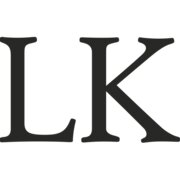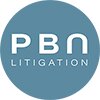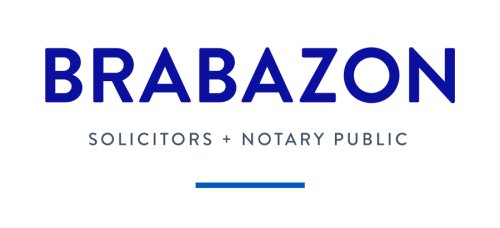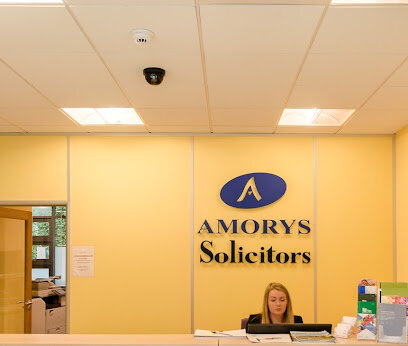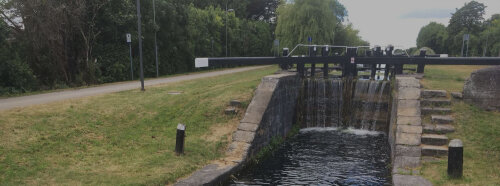Best Antitrust Litigation Lawyers in Dublin
Share your needs with us, get contacted by law firms.
Free. Takes 2 min.
List of the best lawyers in Dublin, Ireland
About Antitrust Litigation Law in Dublin, Ireland
Antitrust litigation in Dublin, Ireland pertains to legal disputes and court cases that arise under Irish competition law. This area of law addresses practices that may restrict free competition in the market, such as price-fixing, cartels, abuse of a dominant position, and anti-competitive mergers. The overall aim is to promote fair trading, consumer welfare, and innovation by ensuring businesses operate on a level playing field. Dublin, as Ireland's capital and main commercial center, is often the focal point for high-profile antitrust litigation brought before the Irish courts or the Competition and Consumer Protection Commission (CCPC).
Why You May Need a Lawyer
Several common scenarios may require you to seek legal advice or representation in relation to antitrust litigation in Dublin:
- You believe your business has suffered from unfair competition practices, such as cartel behavior or market exclusion by larger competitors.
- You have received a formal investigation notice or dawn raid by the Competition and Consumer Protection Commission.
- You are involved in a planned merger or acquisition and are concerned about compliance with merger control rules.
- You are accused of engaging in anti-competitive agreements or abuse of your dominant market position.
- You must respond to allegations, fines, or enforcement proceedings relating to breaches of Irish or EU competition law.
- Your business needs guidance in implementing compliance programs to avoid anti-competitive conduct.
- You are considering pursuing or defending a private action in court for damages arising from breaches of competition law.
Legal issues in this field can be highly complex and carry significant financial and reputational risks. A qualified solicitor or barrister can guide you through investigations, negotiations, and litigation, ensuring that your rights and interests are safeguarded.
Local Laws Overview
Irish antitrust law is governed primarily by the Competition Act 2002 (as amended) and is influenced significantly by European Union competition law, particularly Articles 101 and 102 of the Treaty on the Functioning of the European Union (TFEU). Key components include:
- Prohibition on Anti-Competitive Agreements: Agreements between businesses that restrict competition, directly or indirectly, are generally illegal. This includes price-fixing, market sharing, or bid rigging.
- Abuse of Dominance: Businesses holding a dominant market position are prohibited from abusing that power, for example by imposing unfair pricing or excluding competitors.
- Merger Control: Mergers or acquisitions that may substantially lessen competition must be notified to and cleared by the CCPC before proceeding.
- Enforcement: The CCPC investigates suspected breaches, can conduct searches (dawn raids), and has the power to impose fines and seek criminal sanctions. Private individuals or businesses harmed by anti-competitive conduct may also seek damages through the courts.
- Leniency and Settlements: Companies involved in cartels may receive reduced penalties in exchange for cooperating with investigations.
Because Irish and EU competition laws often overlap, it is important to consider both legal frameworks when dealing with potential antitrust issues.
Frequently Asked Questions
What is antitrust litigation?
Antitrust litigation involves legal proceedings concerning breaches of competition law, such as price-fixing, abuse of market dominance, or other conducts that restrict free and fair competition. These cases can be brought by regulators or by private parties seeking damages.
Who enforces antitrust law in Ireland?
The primary enforcement body is the Competition and Consumer Protection Commission (CCPC). In some cases, the European Commission may also become involved, especially for cross-border matters.
Can an individual or business bring a private lawsuit for antitrust violations?
Yes, individuals or businesses affected by anti-competitive behavior may sue for damages in Irish courts if they have suffered loss due to a breach of competition law.
What are the penalties for breaching competition law in Ireland?
Penalties can include significant fines, criminal sanctions such as imprisonment for individuals, director disqualifications, and orders to cease anti-competitive behavior.
What should I do if my business is subject to a dawn raid?
You should immediately contact your legal representative. It is important to cooperate with the authorities while ensuring that your legal rights are protected during the search.
Are there any defenses available in antitrust cases?
Yes, for example, some agreements may be exempt if they have pro-competitive effects. In cases of dominant position, a company might argue that its behavior was objectively justified.
Do Irish antitrust laws apply to foreign companies?
Yes, if their activities have an effect on competition within Ireland, Irish laws can apply regardless of where the company is based.
How do I report suspected anti-competitive behavior?
You can report suspected violations to the CCPC. Legal advice is recommended, especially if you are a whistleblower or have concerns about retaliation.
How long does an antitrust case usually take?
The duration can vary greatly depending on the complexity of the case, but investigations and legal proceedings may take several months or years.
What role does the European Union play in Irish antitrust matters?
EU competition law applies in Ireland, especially to cases affecting trade between member states. The Irish courts and CCPC work in parallel with EU institutions like the European Commission.
Additional Resources
If you seek further information or support regarding antitrust litigation in Dublin, Ireland, consider these resources:
- Competition and Consumer Protection Commission (CCPC): The state agency responsible for enforcing competition and consumer law in Ireland, providing guidance for businesses and individuals.
- Courts Service of Ireland: Information about the legal process and the courts in which antitrust litigation may take place.
- European Commission - Competition Directorate General: Guidance and enforcement information relating to EU-wide competition laws.
- Irish Law Society and Bar Council: Directories of solicitors and barristers specializing in competition and antitrust law.
- Business Representative Bodies: Such as the Irish Business and Employers Confederation, which may provide information and support.
Next Steps
If you need assistance or believe you may be involved in an antitrust issue, consider the following steps:
- Document all relevant information, correspondence, and evidence related to the suspected anti-competitive conduct or investigation.
- Consult a qualified solicitor or barrister with experience in antitrust and competition litigation to assess your case and advise on your rights and obligations.
- If urgent, for example during a dawn raid, immediately seek legal representation before making statements or providing documents.
- Do not attempt to resolve complex issues or investigations on your own; antitrust law is specialized and mistakes can have serious consequences.
- Use reputable sources and government agencies for guidance and information to ensure you are acting based on accurate and current legal requirements.
Timely and informed action significantly improves your ability to manage risks and successfully resolve antitrust litigation matters in Dublin, Ireland.
Lawzana helps you find the best lawyers and law firms in Dublin through a curated and pre-screened list of qualified legal professionals. Our platform offers rankings and detailed profiles of attorneys and law firms, allowing you to compare based on practice areas, including Antitrust Litigation, experience, and client feedback.
Each profile includes a description of the firm's areas of practice, client reviews, team members and partners, year of establishment, spoken languages, office locations, contact information, social media presence, and any published articles or resources. Most firms on our platform speak English and are experienced in both local and international legal matters.
Get a quote from top-rated law firms in Dublin, Ireland — quickly, securely, and without unnecessary hassle.
Disclaimer:
The information provided on this page is for general informational purposes only and does not constitute legal advice. While we strive to ensure the accuracy and relevance of the content, legal information may change over time, and interpretations of the law can vary. You should always consult with a qualified legal professional for advice specific to your situation.
We disclaim all liability for actions taken or not taken based on the content of this page. If you believe any information is incorrect or outdated, please contact us, and we will review and update it where appropriate.




